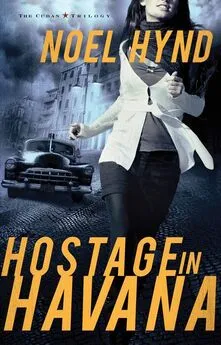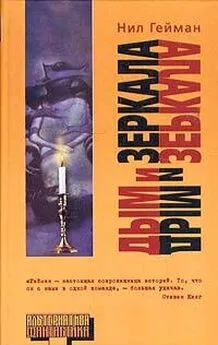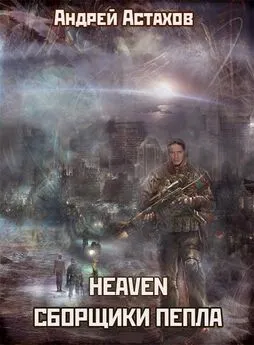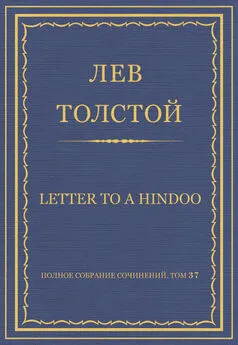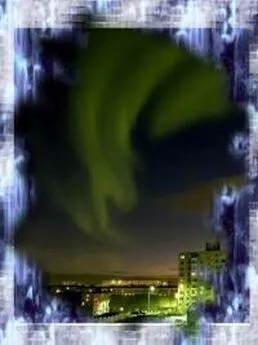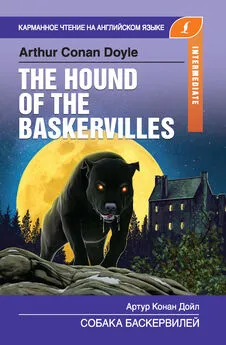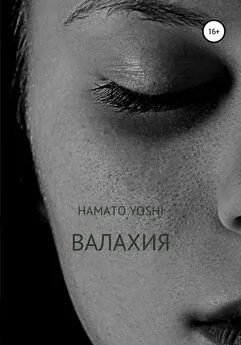Noel Hynd - Hostage in Havana
- Название:Hostage in Havana
- Автор:
- Жанр:
- Издательство:неизвестно
- Год:неизвестен
- ISBN:нет данных
- Рейтинг:
- Избранное:Добавить в избранное
-
Отзывы:
-
Ваша оценка:
Noel Hynd - Hostage in Havana краткое содержание
Hostage in Havana - читать онлайн бесплатно полную версию (весь текст целиком)
Интервал:
Закладка:
“So what this trip is about, for you, is reconciliation, of sorts,” she said. “Setting things right. History. Family.”
“You could say that.”
“And no hard feelings?”
“On my part? To whom? No, of course not, none.”
Thea’s voice, calling from the main building, interrupted them. They turned. She walked to them. “Everything okay?”
“Just fine,” Alex said. She liked Thea.
“Senor Johnny’s awake. My boys are helping him. I have two sons – Manolo, who’s ten, and Willie, who’s eight.”
“Wonderful,” Alex said. She made no mention of a husband or father, and Alex knew better than to ask.
“Dinner will be ready in fifteen minutes,” Thea said. “Alex, let me show you something first.” She took Alex by the hand and led her to a small farm that they kept at a low plateau that ran down toward the beach. They continued to speak Spanish. “We keep chickens and rabbits back here.” She indicated chickens in a fenced-in yard and the rabbits in various hutches. “We trade with the people in the town. It all works out very well. Over there in that field, we raise potatoes, carrots, and onions.”
“No cash?” asked Alex, intrigued.
“Do we raise cash?” she laughed.
“No. You don’t use cash for your transactions?”
Thea shook her head. “Money is scarce. Troquamos,” she said. Barter. She indicated a small inlet that ran up against their land. The water seemed shallow, forming a small tidal basin that was alternately blue and reddish in the light from the setting sun.
“In the evening, crabs and eels come into that little cove to feed on minnows,” she said. “I go out to where the water comes in and we catch them. Do you like eel?”
“I’m not sure I’ve ever had it,” Alex answered. “Maybe once. Pickled.”
“You liked?”
“I don’t think so.”
“You should try fresh,” she said.
“Algun dia.”
“Yes, someday,” Thea agreed. “Tomorrow is made up entirely of somedays. I wish you could stay longer. I’d catch and cook eel tomorrow.”
“Someday,” Alex said again.
A screen door slammed up at the cottage. “Ah. Here’s my father,” Thea said.
A trim, tanned Cuban stepped out. Alex looked at him. His appearance was so similar to an elderly version of Paul Guarneri that it was frightening. For a split second she thought she was seeing his father back from the dead. But this was Senor Johnny.
A smile creased his lined face. He lifted his left hand and waved to them. He walked forward a few paces with a shuffling gate, the result of the minor stroke he had suffered a few months earlier.
He waited till his guests had walked up the path to his home. Then he greeted Alex warmly, placed a hand on her shoulder, and welcomed her into his home. It was in that instant that Alex completely understood how Paul had been so easily made to feel like family by people who had lived in a different world than his own.
FIFTY-THREE
They sat in a small dining room, Johnny, Paul, and Alex seated at a table for six. Thea moved in and out of the cottage, completing her dinner preparations. Her boys helped, briskly going in and out of the house with slams of the screen door. Paul and his uncle sat and talked quietly in Spanish over a shot apiece of calambuco, a local moonshine rum. The drink was dark and thick. When they offered her some, Alex declined.
Thea cooked a dinner of chicken and rice, plain but delicious. The chicken was freshly killed and grilled over driftwood on an open-air grill on the north side the house. The rice had been cooked in a pot that boiled on the same grill. Thea added greens from her garden and served. Paul’s uncle chatted and rambled, his cane leaning against the table near where he sat. He told a story about an abandoned building that had recently collapsed in Santiago. The fall of the building had killed three men and two women who lived on the first floor. Like much else in Cuba, he remarked, the building was a paradox. If the building were abandoned, why were there people in it when it collapsed?
“The reason they were there was because they were stealing bricks from the support pillars of the building,” Johnny explained to Alex. “But it wouldn’t have collapsed if it had been completely abandoned. That’s Cuba today.” For some reason, Uncle Johnny thought this was funny, or at least ironic. He tossed back his head and laughed. The old Marxist retained a twinkle in his eye. He treated Alex and Paul as a couple.
“You two, who do not live on this island,” he said toward the end of dinner. “Perhaps you do not know things politically. Can you tell me the difference between a Cuban socialist, a Cuban Marxist, and a fascist?”
Paul shrugged.
“Digame,” Alex answered. Tell me.
“A Cuban socialist has two cows. The government takes one and gives it to his neighbor. A Cuban Marxist has two cows. The government seizes both and provides you with milk. A counterrevolutionary fascist has two cows. The government seizes both and sells you the milk. You join the underground and start a campaign of sabotage.” He turned to Paul. “How does it work in America?” he asked.
“We have two political parties,” Paul said, “who do things differently.”
“?Como?” Johnny asked.
“An American Republican has two pigs. His neighbor has none. ‘So what?’ the Republican says. An American Democrat has two pigs. His neighbor has none. So he feels guilty. He votes people into office who tax the pigs, forcing him to sell one to raise money to pay the tax. The people he votes for take the tax money, buy a pig, and give it to his neighbor. He feels righteous.”
Paul’s uncle laughed and so did Thea. Then conversation drifted.
Afterward, they wandered into a sitting room next to the screened porch on the back of the house. The sound of the surf punctuated the night. As promised, there were pictures on the walls, old black-and-whites in frames that didn’t appear to have changed from the 1960s or ‘70s. In each, in varying poses and places, Alex spotted Johnny as a young man, often in his military uniform in the revolutionary army.
Johnny lagged behind. Paul gave Alex a walk-through of the photographs.
“My Uncle Johnny left university in 1957 and served in Castro’s regiment in the Sierra Maestra mountains,” Paul said. “He rose in the ranks. Then Castro’s rebel army split in half and a second division was formed. Uncle Johnny was a major under General Guevara. Johnny knew Che personally. Very well, in fact.”
They arrived at a wall photo that evidenced what Paul was saying. Several revolutionaries huddled together under tree branches, a setting that appeared to be jungle. Paul indicated his uncle with an arm around a thirtyish Guevara.
“As the war continued in 1958,” Paul continued, “Guevara led his divisions west for the push into Havana. They traveled by foot for seven weeks, entirely at night to avoid ambush. Sometimes they didn’t eat for several days. In the final days of 1958, my uncle was promoted again to take the place of revolutionary officers who had fallen. He became part of the high command with Guevara. The rebels cut the island in half with an attack on Santa Clara, the capital of the La Villas province. Santa Clara was the final military victory of the revolution. Johnny was wounded there. Fractured kneecap. But he stayed with his men. A few weeks later, he rolled into Havana on a captured government tank. Guevara’s regiment came into the capital six days before Castro’s and two days after Batista had fled to the Dominican Republic.”
And there, on the walls, the way some men post diplomas or family pictures, were half a dozen photographs of Havana in January of 1959. In each, Johnny Guarneri was somewhere present: assembled with army riflemen, crouching along the Plaza Vieja with comrades, smashing slot machines that had been ripped out of the Tropicana and hauled out into the street, and in the living room of Batista’s former mansion, feet up on the sofa.
Alex and Paul heard footsteps and turned away from the pictures. Johnny entered, glanced at them, and grinned. “Half a century ago,” he said, following their thoughts. “Sometimes you look back and you think, ‘How did I get from there to here?’” He laughed. The old warrior exuded a strange charm.
Paul crossed the room and offered an arm to his uncle and guided him to the sofa. Johnny seemed older than his years by a decade. He had a lined face, a battered body, and knobby hands.
“The things you do when you’re young,” Johnny said. “God help us. No do-overs, though. You get one chance, one go ‘round.” He glanced at the wall. “Castro, Batista. Meyer Lansky, Che Guevara.
What you don’t know when you’re a young man,” he said, “is that they’re all corrupt, every one of them. And if they aren’t before they get power, they are after they’ve tasted it.”
He paused again. Thea arrived and gave Johnny a glass of water, with ice in it. The ice cubes clicked against each other. With the hand that held the glass, Johnny pointed to the photographs. “Interesting, aren’t they?” he asked.
“Very,” she said.
“I showed your husband night before last. He had never seen them.”
“So I’m told,” Alex said.
“Well, I saw it all close up,” Johnny said, recalling. “I remember New Year’s Eve when the government fell. The evening started out calm, a little tense maybe because everyone knew the rebels were close to the city. But no one expected Batista to use the cover of the midnight party to catch a plane to Miami. I was still with Guevara’s army, and we were about five miles southwest of Havana. But once the word got out that Batista was gone, people started to come out of their homes to celebrate. The local militias that were stationed in the working neighborhoods came out and stormed the casinos and the police station. Guevara woke us up and told us it was time to move into Havana. It was 4:00 a.m. We started to move to the capital. We didn’t get there till daybreak, and by then there was chaos. Happy chaos. Our army of happy campensinos overran the casino lobbies. If doors were locked, we broke them down. If they weren’t locked, our people surged in. After six years of fighting, the end was swift and efficient.” Johnny laughed. “One group of farmer soldiers drove a truck full of pigs into Havana and set them loose in the lobby of the Riviera. They defecated and urinated all over everything. They destroyed the place as much as the rebel soldiers smashing the roulette wheels.”
“The Riviera was Meyer Lansky’s pride,” Paul said, explaining the significance. “It was a special insult and years in the making. The gangsters had been a huge part of the Batista regime, and they’d kept the regime in power. So the casinos were targets.”
“So were the homes of the gangsters,” Johnny continued. “In the streets, there were fires blazing. All the mobster’s possessions – curtains and furniture – were pulled out of the casinos, soaked with kerosene, and ignited. Parts of the interiors of the casinos were torched too, as they deserved to be. Then when the sun rose on January second, mobs stormed out to Miramar where most of the gangsters had mansions. They overran the mansions and looted the place. All the mafia guys were gone though. They knew what was coming. They’d filled suitcases with money and took off for Miami in private planes and boats while Castro’s army moved toward the city. It was terrifying but it was beautiful,” the old man remembered. “Like a hurricane hitting the island. Valiente. Audaz. Podoroso. The criminals were swept away by revolutionaries in green khaki who motored through the streets with automatic weapons, waving the black and red flag of the Twenty-sixth of July Movement. One night the casinos are filled with mobsters and their whores in suits, diamonds, and furs – and the next night illiterate warriors from the provinces, bearded and with bare feet, are destroying everything linked to Batista.”
Читать дальшеИнтервал:
Закладка:
